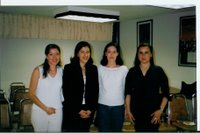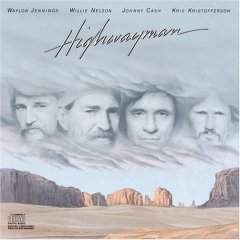Those who have read Milan Kundera's "The Art of the Novel", must have noticed how blatantly he labeled "Kramer vs. Kramer" and "Dr. Zhivago" as shining examples of kitsch! I have not seen Dr. Zhivago, but even with my limited understanding, I could see that the former is a very typical, ordinary movie, which publicity made look like a masterpiece.
However, what I want to mention here is certain strange things I came across in print, things that should/could have been easily avoided, things that make no sense at all!
Most people know about the Band Aid concert in 1984, in which various famous musicians performed non-stop for 24 hours to collect donations for the famine-ravaged Ethiopia. Most people also know that Bob Geldof of the bandBokmtown Rats, was the initiator of the whole effort. He also hold another concert entitled, Live 8, in 2004.
Geldof, a heart-broken man with a divorce under process and trying to forget everything in alcohol, happened to come across a BBC documentary on the famine in Ethiopia, and then decided to do something for the people there. Apparently, he had enough persuasive power to line up many top-notch musicians of the world. This event generated enough awareness among people, collected lots of money, brought an honorary Knighthood to Geldof, and converted him from "Bob the gob" to a "Foul-mouthed Messiah".
__________________________________________
Band Aid - Do They Know Its ChristmasIt's Christmas time
There's no need to be afraid
At Christmas time, we let in light and we banish shade
And in our world of plenty we can spread a smile of joy
Throw your arms around the world at Christmas time
But say a prayer
Pray for the other ones
At Christmastime it's hard, but when you're having fun
There's a world outside your window
And it's a world of dread and fear
Where the only water flowing is the bitter sting of tears
And the Christmas bells that ring there are the clanging
chimes of doom
Well tonight thank God it's them instead of you
And there won't be snow in Africa this Christmas time
The greatest gift they'll get this year is life
(Oooh) Where nothing ever grows
No rain nor rivers flow
Do they know it's Christmas time at all?
(Here's to you) raise a glass for everyone
(Here's to them) underneath that burning sun
Do they know it's Christmas time at all?
Feed the world
Feed the world
Feed the world
Let them know it's Christmas time again
Feed the world
Let them know it's Christmas time again
(Bob Geldof & Midge Ure)
_________________________________________
The part that always intrigued me is "And there won't be snow in Africa this Christmas time", which is totally absurd. I mean, there are only two countries in the entire African continent that ever have snowfall: Algeria and South Africa. But snow in Ethiopia? Never! At least, as far as I know, there never is any snowfall in that part of the World.
Why did Geldof write this then? One might agree that the song was aimed at the rest of the world, mainly the developed world and so associating snowfall with the Christmas was not only necessary, but also perhaps appropriate. But does it allow someone the poetic justice to say something so absurd?
This reminds of a book I read a few years Ago. It was a book lent to me by my then colleague SdV, and it was entitled, "Caesar: A Novel" that belonged to the Masters of Rome Series and was written by Colleen McCullough, an Australian author. I loved the book. But then I stumbled upon a fact mentioned in the book -- that it was September and the winter was coming to an end in Rome, which was something I could neither fathom nor digest.
And then I tried to think why the author would write this? The answer was clear to me: as an Australian person, it was natural for her to be used to such seasonal changes.
But this is nothing compared to what I have to read in my language. I subscribe to a magazine published from my state, which is considered the best journal in my language, and which was edited by a multi-faceted pesonality: a PhD in nuclear physics from the Imperial College, a University professor, literary figure, moviemaker, playwright, director of dramas and editor of a whole series of college/university level textbooks. He was very meticulous about not letting mistakes creep into his magazine and, to a large extent, he succeeded in doing so.
But then in 1997, he was diagnozed with prostate cancer and had to go to the Unites States for his treatment. The owner of the magazine then took over as editor as well. And all hell broke loose since then. (People back home still praise the magazine left and right, but some of the things that get published now in that magazine makes me cringe. I wonder if there is any editing at all!)
For example, someone wrote in 2003 that Subramanyan Chandrasekhar, known as Chandra lived in Chicago city. Chandra, the winner of Nobel Prize for physics in 1983, had died on August 21st, 1995 (I remember this clearly , becuase Linus Pauling, another giant and Nobel Laurate in Chemistry and Peace, and who perhaps missed another Nobel, had died on 19th August, 1994!).
Another person mentioned in a story that Newton never won the Nobel Prize for Relativity but for something else. Newton died in 1727; the Nobel Prize was founded in 1900! The Nobel Prize was thus founded almost 275 years afer Newton's death. This was just a small mistake on the author's part; perhaps he meant Einstein all along, and it was just a slip of the pen. It's the duty of the editorial board to correct such obvious mistakes. And they failed in doing so. Perhaps they did not have someone from a science background, or someone informative, or maybe they just did not care!
This magazine has over the years spitted out a lot of such bullshit, things that could have been easily corrected. But who cares!
In my view, the most blatant bullshit ever that is published in this journal, comes from a person who is supposedly a foreign affairs expert (for the magazine, at least) and who writes about the Middle-East conflict. Following Soviet era policy, not only he blindly supports Arafat, but also writes lots of absurd things about the whole issue. For example, Ehud Barak, the Labor Prime minister of Israel (and politically the most leninent of them, all as far as the Palestinian conflict goes) is, to our columnist, the most hard-liner Likud Prime Minister, due to whose stubbornness the Oslo accord failed. Anyone who knows anyhing about the developments in the whole issue, knows that Arafat or any other Palestinian leader would never succeed to get what Barak offered them including East Jerusalem.
I do not know if our columnist mistakes Barak for someone else such as Begin or Sharon, of if he smokes pot, or if he's just a plain asshole!
This brings me back to the Master! In most of his later books, he adds a few pages telling some interesting things. For example, he mentions in the introduction of his, "The Story of a Shipwrecked Sailor" that the only justification for writing the book after 15 years is that, "I promised to him that I would write the book, and I'm not a man to go back on his words."
In the epliogue to his "The General in His Labyrinth", he mentions how he committed a blunder and which almost passed unnoticed, until a friend of his pointed it out to him and saved him from embarrassment. In this histrorical novel, Gabo described a meeting between Don Simon Bolivar and Field Marshal Antonio Jose da Sucre, and they ate ripe mangoes, among other things. The year was either 1829 or 1830 (Sucre, in his mid 30's, was assassinated on the 4th of June 1830, if I remember correctly)! In reality, mango had not yet arrived in that part of the world yet!
What makes Gabo the Master is that he does not feel ashamed to accept his folly and even mentions this, a thing he could have easily avoided penning down!
Our authors (and the editor) should perhaps read, "The General in His Labyrinth" to learn a thing or two about editing/writing, if not to learn the Latin American History.
__________________________________________________________________
Sources:
http://en.wikipedia.org/wiki/Band_Aid_(band)
http://www.lyricsdownload.com/band-aid-do-they-know-its-christmas-lyrics.html
http://en.wikipedia.org/wiki/List_of_countries_receiving_snowfall
http://query.nytimes.com/gst/fullpage.html?res=9803E5DF143BF93BA15752C0A9639C8B63
http://www.amazon.com/gp/product/0380710854/102-5490813-8303328
http://en.wikipedia.org/wiki/Isaac_Newton
http://en.wikipedia.org/wiki/Linus_Pauling
http://en.wikipedia.org/wiki/Subramanyan_Chandrasekhar
http://en.wikipedia.org/wiki/Ehud_Barak

 My computer suddenly started talking in Greek yesterday. I mean, it suddenly declared that there were some spywares in it. As usual, I was pissed off; but having no knowledge about such things I decided to wait for JA. When I chekced for him, he was already gone, and so I decided to wait for him.
My computer suddenly started talking in Greek yesterday. I mean, it suddenly declared that there were some spywares in it. As usual, I was pissed off; but having no knowledge about such things I decided to wait for JA. When I chekced for him, he was already gone, and so I decided to wait for him. Don Lulu Bolivar (I'm joking, she is just Lulu; though she was born on 17th Dec., the day Don Simon Bolivar died) is a friend from Mexico. I met her online in 1999. I used to chat in Cyberspace then, and suddenly someone called lulu sent me a request for talk. It was Unix machine, and talk was the program we used back then. Yahoo messenger had either just, or not yet, arrived. My login was, in a way, androgynous, a reason I found many people were eager to chat with me.
Don Lulu Bolivar (I'm joking, she is just Lulu; though she was born on 17th Dec., the day Don Simon Bolivar died) is a friend from Mexico. I met her online in 1999. I used to chat in Cyberspace then, and suddenly someone called lulu sent me a request for talk. It was Unix machine, and talk was the program we used back then. Yahoo messenger had either just, or not yet, arrived. My login was, in a way, androgynous, a reason I found many people were eager to chat with me.
 Almost everyone learns a thing or two from the old people. Perhaps in no other book it's as vivid and poignant as in The Old Man and the Sea.
Almost everyone learns a thing or two from the old people. Perhaps in no other book it's as vivid and poignant as in The Old Man and the Sea.